AI influencer marketing tools are everywhere in 2026.
AI influencer marketing tools help brands find creators, plan campaigns, and measure results faster using data-driven automation.
They’re no longer a bonus.
They’re the baseline.
Brands know it.
Creators know it too.
Because without AI, you move too slow.
Trends flip overnight.
Budgets need proof.
And no one has time to waste on guesswork.
The right tools change that.
They help you find the right partners.
They spark better content ideas.
And they show you exactly what’s working.
This guide rounds up the best AI influencer marketing tools for brands.
We’ll look at discovery.
We’ll look at content.
And we’ll look at analytics.
Each section has a standout pick.
Plus a few extras you should know.
The goal?
To help you work smarter, not harder.
And to show you why AI is the secret weapon behind today’s best campaigns.
AI Influencer Marketing Tools for Discovery
Finding the right influencers used to take forever. Hours of scrolling, searching, and second-guessing. Now, AI takes over the heavy lifting. Instead of starting from scratch, brands can plug into smart tools that narrow down the right creators in minutes.
1. CreatorGPT by Afluencer
AI-powered discovery, campaign planning, and more in one free tool.
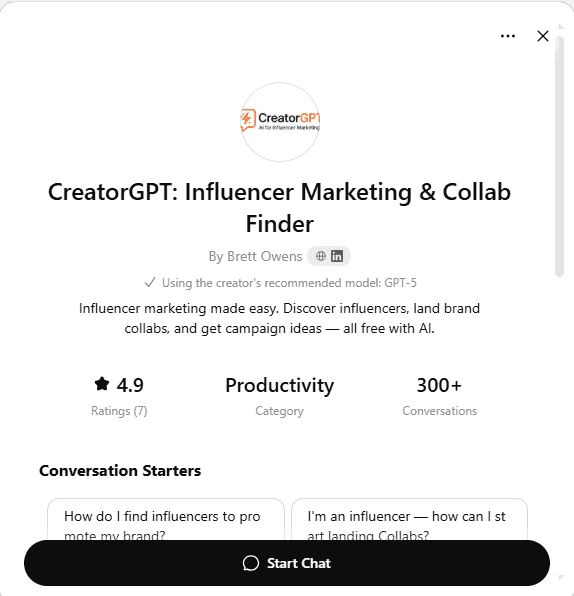
If you try only one AI influencer marketing tool in 2026, make it CreatorGPT. First of all, it’s completely FREE to use. It’s designed for brands and creators and built with influencer marketing at its core. While most AI tools give generic advice, CreatorGPT feels like talking to a strategist who has run hundreds of campaigns. It pulls from real influencer marketing data, so the answers are specific, practical, and tailored to what brands actually need.
What sets CreatorGPT apart is how versatile it is. Discovery is its strongest suit. You can ask it to suggest influencers for a fitness brand in Los Angeles with 20K to 50K followers, and it will deliver precise recommendations. You don’t have to scroll through endless databases or waste hours checking profiles manually. CreatorGPT narrows the search instantly, helping you focus on the right fit.
AI marketing for brands doesn’t stop at matching. CreatorGPT also helps with campaign planning. If you’re unsure whether a gifting collab or a paid collab makes sense, it breaks down the pros and cons. Need a Collab brief that sounds friendly but still professional? It will draft it for you, saving you time and cutting out guesswork.
Another big plus is flexibility. CreatorGPT works for small startups with tight budgets and larger brands running multiple campaigns at once. For small teams, it acts like an extra strategist you don’t have to hire. For bigger teams, it speeds up processes and reduces manual research. And because it’s available in the GPT Store, it’s easy to access whenever you need it.
Can AI do it all?
What matters in 2026 is not replacing people with AI. It’s reducing overwhelm. CreatorGPT helps brands think through influencer strategy before money is spent, creators are contacted, or briefs are sent. That combination of AI insights and human decision-making is what modern influencer marketing actually needs.
Think of CreatorGPT as your co-pilot (and Afluencer AI Concierge) for influencer discovery and campaign setup. It doesn’t replace your judgment, but it helps you make smarter, faster, and more confident decisions. That’s why it deserves the spotlight as the best AI tool for influencer discovery in 2026.
2. Upfluence
Influencer search and built-in CRM features for brands at scale.
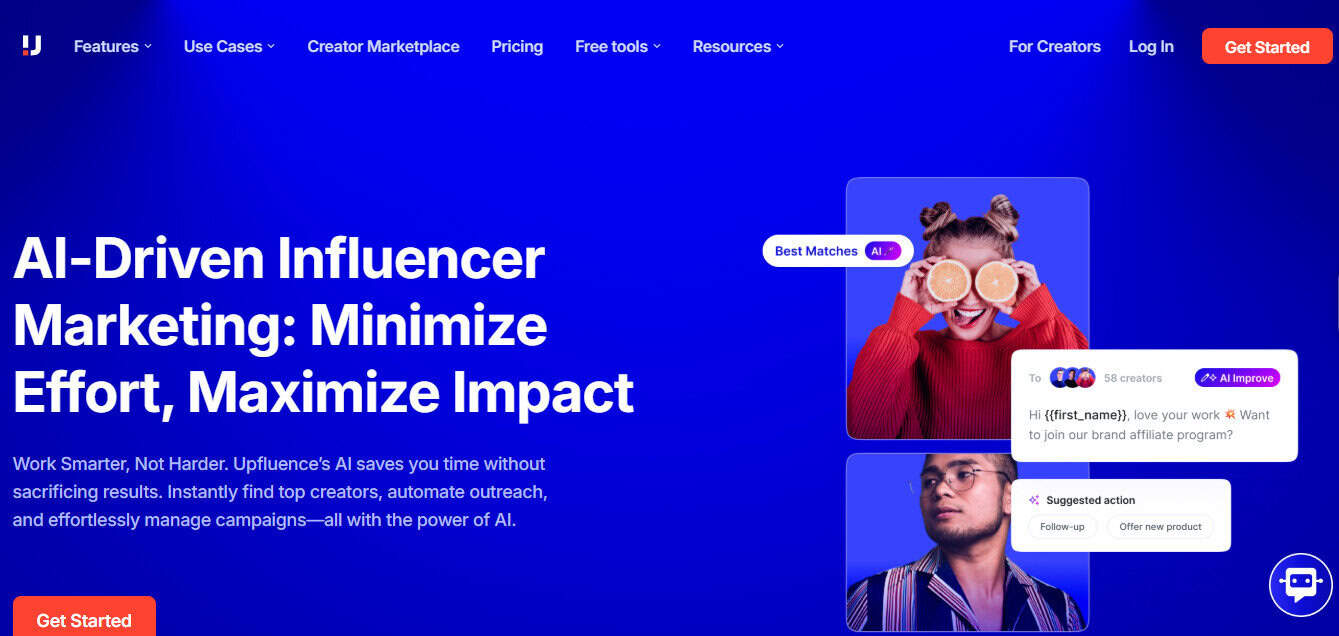
Upfluence has been in the influencer marketing space for years, and its AI-driven upgrades make it even more powerful in 2026. The platform houses millions of influencer profiles and gives brands the ability to filter by everything from niche to engagement rate to audience location. What makes it stand out is the built-in relationship management system. Instead of juggling spreadsheets and emails, you can manage outreach, communication, and payments all within the platform. For mid-sized to larger brands that want both discovery and influencer CRM tools in one place, Upfluence is a reliable, time-saving option. They’ve got these aspects of AI marketing for brands covered. However, access to its AI tools comes only with a paid subscription.
3. Influencity
Large influencer database with AI filters for precise audience targeting.
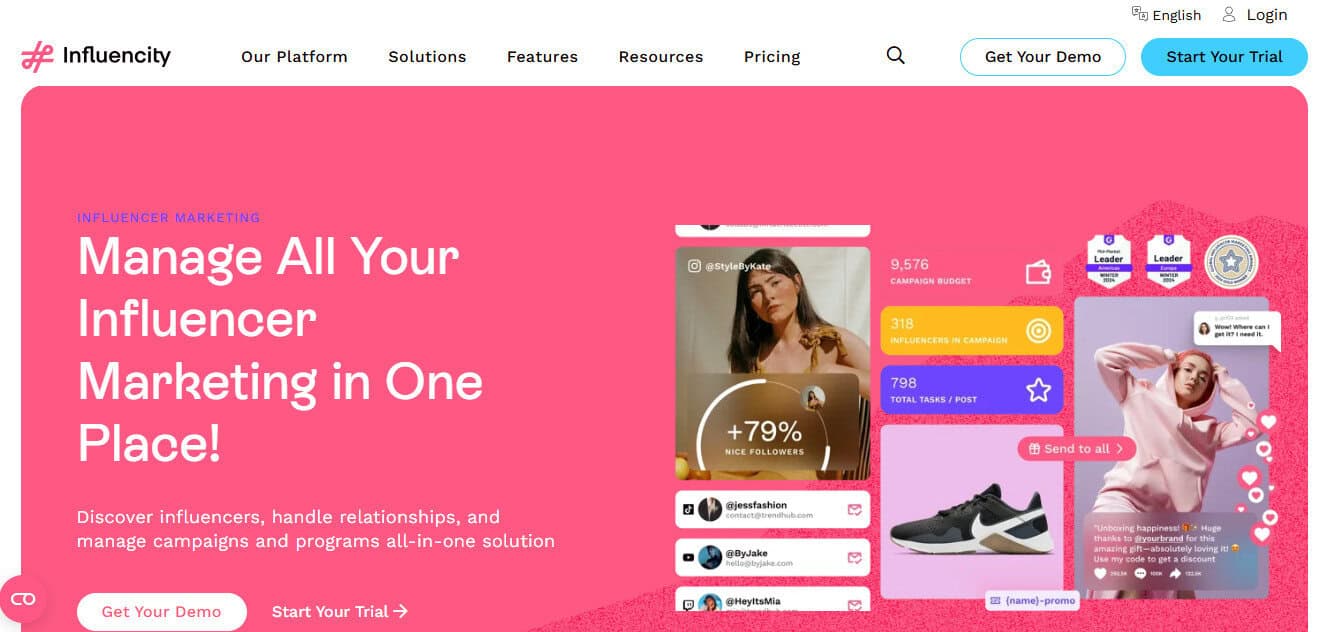
Influencity is known for its scale and accuracy. The platform offers a massive global database, and its AI-powered filters let brands drill down into very specific audience traits. Want to find influencers who reach young parents in Europe with an interest in eco-friendly products? Influencity can pinpoint them. It also provides detailed audience insights, so you’re not just picking influencers based on follower counts. Instead, you see who they actually influence. This precision makes Influencity ideal for brands that value data-driven decisions and want to ensure their budget goes toward creators with audiences that truly match campaign goals. Like Upfluence, Influencity’s AI features are only available through paid plans.
4. Modash
Audience transparency and fraud detection to ensure authentic partnerships.
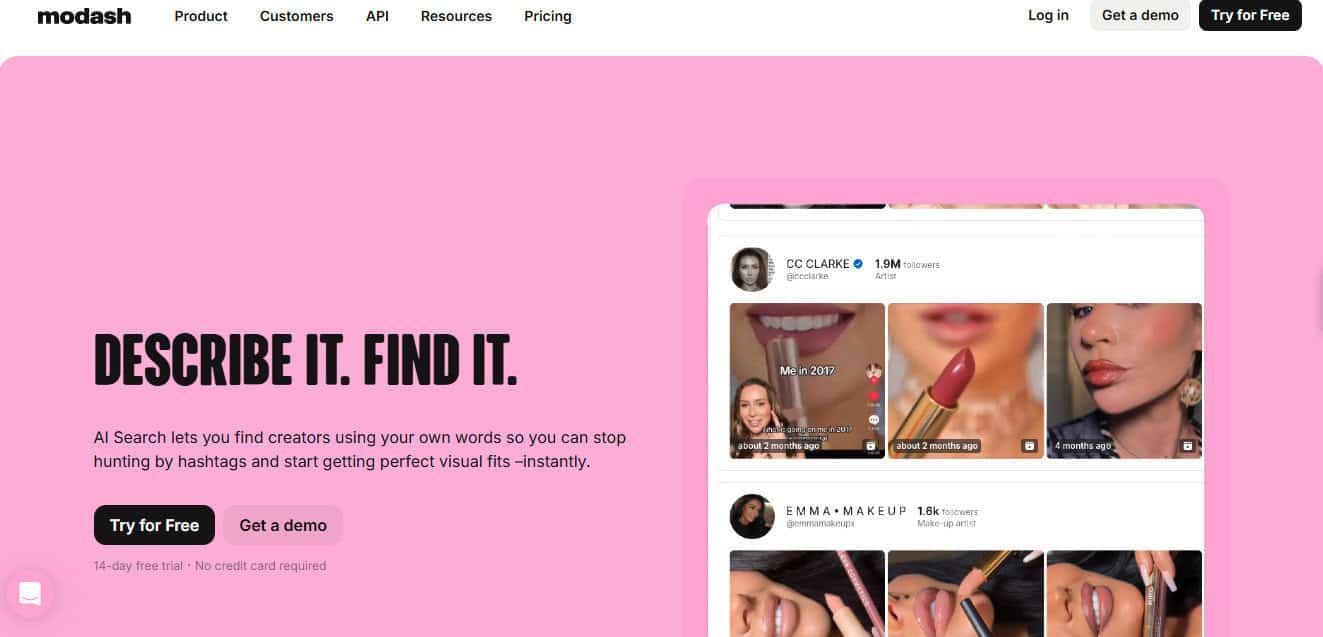
Modash shines when it comes to trust and transparency. Fake followers and inflated metrics are still challenges in influencer marketing, but Modash helps brands avoid these pitfalls. Its AI tools dig deep into audience data, revealing demographics, engagement authenticity, and potential red flags. This gives marketers confidence that the influencers they choose actually have real influence. Beyond fraud detection, Modash also makes discovery easier with filters that highlight relevant creators quickly. For brands worried about wasting budget on fake accounts or bots, Modash provides peace of mind and ensures influencer partnerships deliver genuine impact. There’s a free trial to test it out, but full AI access requires a subscription.
AI Influencer Marketing Tools for Influencer Content
Once you’ve found the right influencers, the next challenge is content. Campaigns need captions, visuals, scripts, and sometimes even full video concepts. That’s where AI shines again. These tools help brands and influencers create engaging posts faster—without sacrificing creativity.
5. ChatGPT
Fast, versatile content ideas, captions, and scripts for influencer campaigns.
ChatGPT has become one of the most widely used AI content tools, and for good reason. It’s versatile, fast, and surprisingly creative when it comes to brainstorming campaign ideas. Brands can use it to draft captions, outline scripts for influencer videos, or even generate FAQs for product campaigns. For influencers, it’s a quick way to beat writer’s block or refine brand messaging. ChatGPT also works well for A/B testing—producing multiple caption versions in seconds so you can pick the one that matches your audience’s tone.
And if you want this power tuned specifically for influencer marketing? That’s exactly what CreatorGPT offers. It’s ChatGPT-powered but trained on real campaigns, so the answers feel tailored instead of generic. Best of all, CreatorGPT is free to try in the GPT Store, making it a simple entry point for testing AI marketing for brands who might want a low-risk option.
Need faster influencer matches and campaign ideas? Try CreatorGPT free in the GPT Store and skip the guesswork.
6. Jasper
AI content creation with a consistent brand voice across channels.
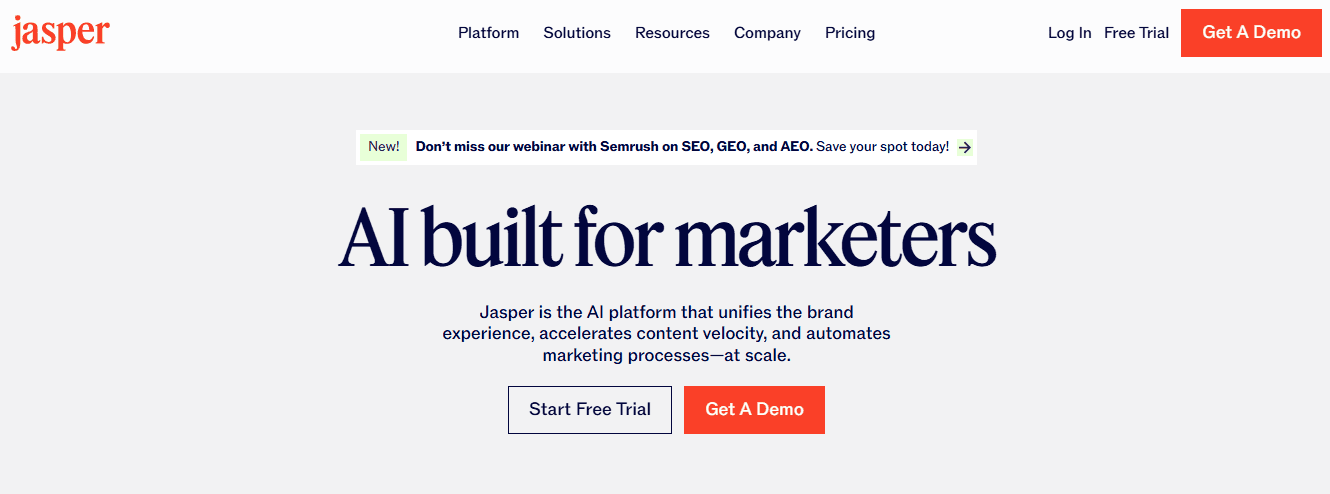
Jasper is another strong AI content tool, especially for brands that care about maintaining a consistent voice. While ChatGPT is flexible, Jasper is built with “brand voice” features that lock content into a specific style and tone. That makes it ideal for companies running influencer campaigns across different markets but still needing unified messaging. Jasper can also generate longer-form pieces, like blog posts or email sequences, which pair well with influencer campaigns. It’s a paid tool, but the voice customization and advanced features make it popular with larger marketing teams.
7. Canva AI
AI design tools for instant visuals, templates, and campaign graphics.
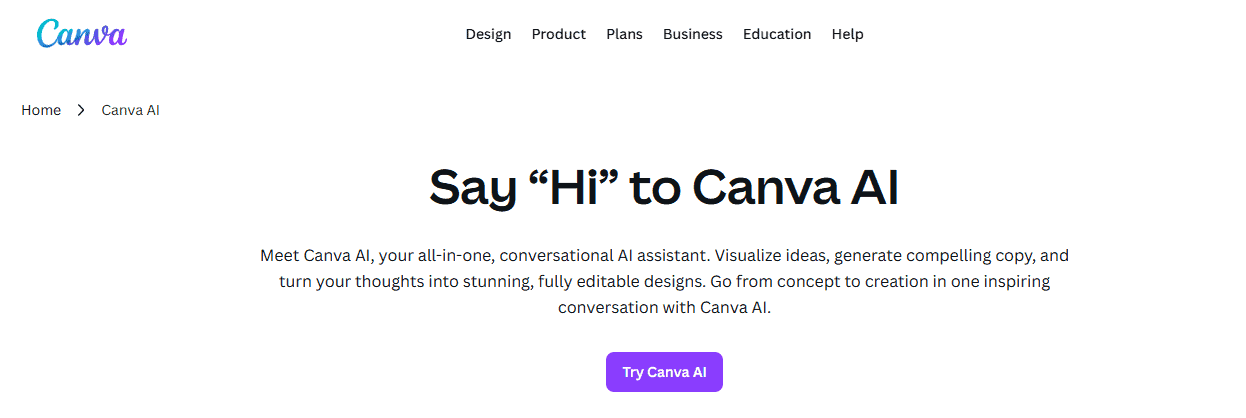
AI marketing for brands just got even easier. Visuals matter just as much as captions, and Canva has taken design to another level with AI. Features like Magic Design and text-to-image generation let brands and influencers create campaign-ready graphics in minutes. Need a product mockup for an Instagram Reel? Canva AI can draft one instantly. Struggling with layout ideas? Magic Design suggests polished templates that fit your campaign style. The best part is accessibility—Canva is user-friendly, so even influencers without design backgrounds can produce professional-looking content. It’s a must-have for speeding up the creative side of influencer marketing.
8. Lately.ai
AI that repurposes, schedules, and optimizes content to boost reach.
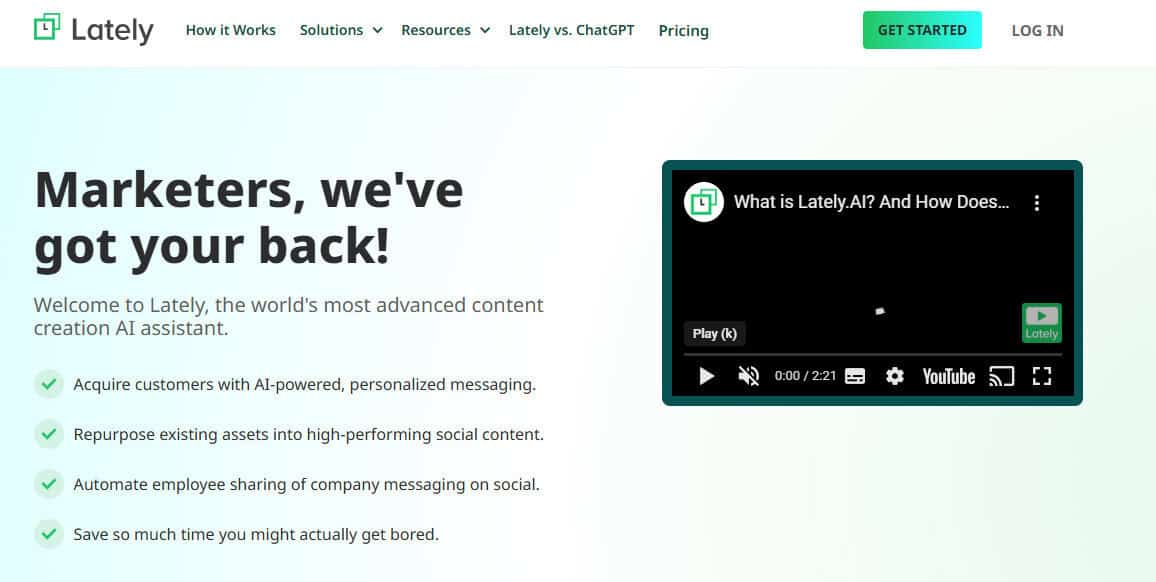
Lately.ai goes beyond simple content repurposing. Yes, it can turn long-form content like blogs, podcasts, or videos into dozens of short social posts, but that’s only part of the story. The platform learns your brand voice by analyzing past content and engagement, then uses that knowledge to generate copy that feels consistent across every channel. It also suggests the best posting times, builds content calendars, and adapts to multiple accounts or teams. For brands looking to get more assets out of their influencer Collab, Lately.ai makes it easier to keep messaging sharp, on-brand, and scalable. All while cutting down the hours spent on manual content creation.
AI Influencer Marketing Tools for Influencer Analytics
Finding influencers and creating content are only half the job. Brands also need to know what’s working, what’s not, and where budgets should go next. That’s where AI analytics tools step in. They track audience quality, engagement, and performance so campaigns can stay on course.
9. HypeAuditor
AI influencer marketing for brands: In-depth influencer analytics with fraud detection and ROI forecasts.
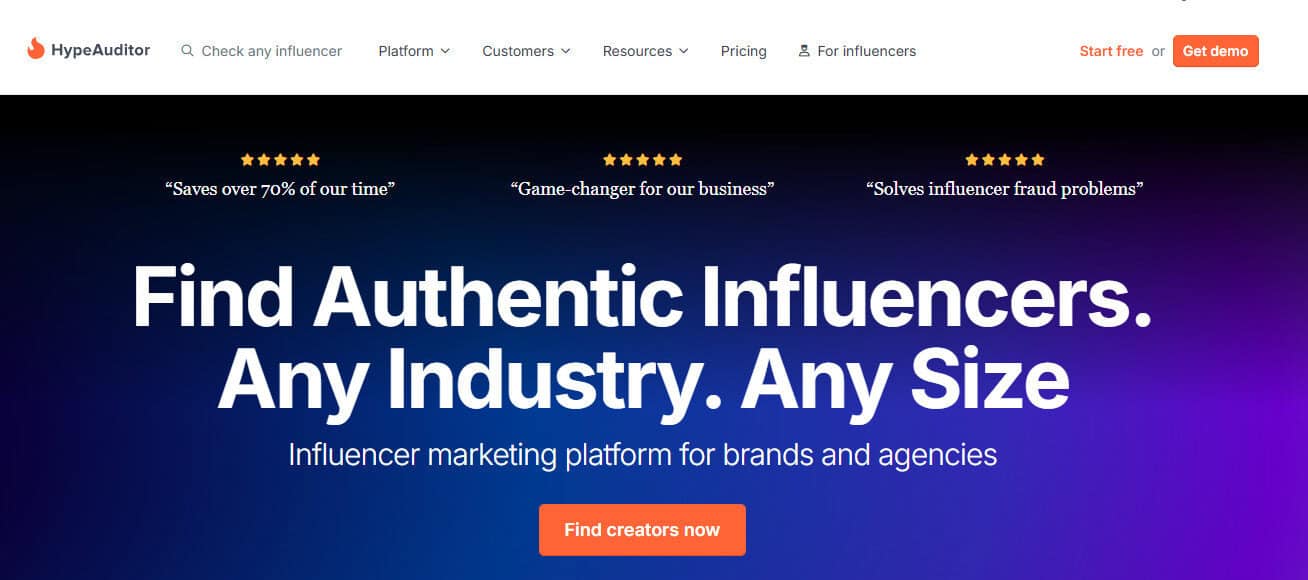
HypeAuditor is all about analytics. The platform dives deep into influencer data, looking at demographics, engagement behavior, and follower growth across Instagram, TikTok, YouTube, and more. Its unique Audience Quality Score (AQS) rates how authentic an influencer’s audience really is, which makes it easier to compare creators at a glance. AI-driven fraud detection is another strong point—it flags suspicious spikes in followers or bot-like engagement before you waste budget. On top of that, HypeAuditor estimates ROI, earned media value, and campaign costs, so brands can forecast outcomes with more confidence. For teams that care about accuracy and transparency, this tool delivers.
10. BuzzSumo
Real-time content and influencer analytics to spot trends and key voices.
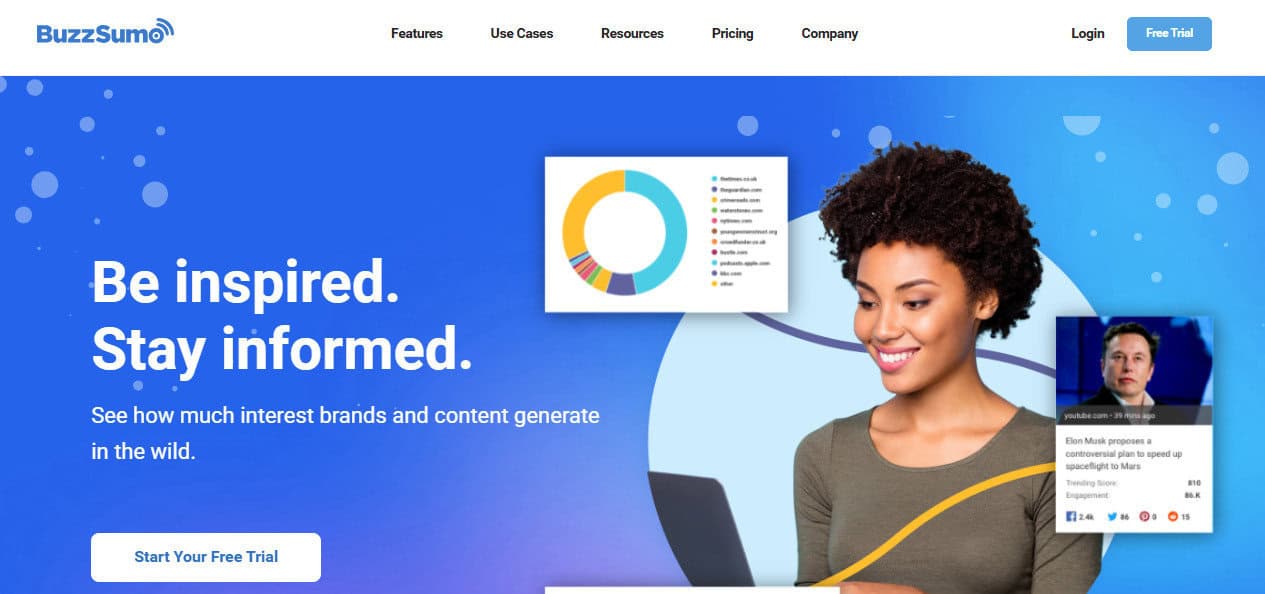
BuzzSumo is best known for content insights, but it doubles as a smart influencer analytics tool. It shows which influencers are driving engagement in your niche and tracks how their content performs over time. Instead of just listing follower numbers, BuzzSumo highlights who actually sparks conversations and spreads content. You can set up alerts for new trends, competitor mentions, or viral posts, and use that data to guide your influencer choices. The analytics also allow you to benchmark your influencer campaigns against industry activity, giving you a clearer picture of what’s working. It’s subscription-based, but its real-time insights make it valuable for strategy and measurement.
AI Influencer Marketing Tools FAQ (2026)
What are AI influencer marketing tools?
AI influencer marketing tools are platforms that use artificial intelligence to help brands find influencers, plan campaigns, create content, and analyze results. In 2026, these tools focus less on automation alone and more on helping brands make faster, smarter decisions without guesswork.
Are AI influencer marketing tools worth using in 2026?
Yes. Influencer marketing moves too fast to rely on manual research alone. AI influencer marketing tools save time, reduce risk, and help brands focus their budget on creators who actually fit their goals. For most brands, AI is now a necessity, not an extra.
Can AI replace influencer marketing managers?
No. And it shouldn’t. In 2026, the best results come from AI supporting human judgment. AI influencer marketing tools handle research, suggestions, and analysis, while people make the final decisions, build relationships, and shape strategy.
What is the best AI influencer marketing tool for beginners?
For brands just getting started, CreatorGPT is one of the easiest tools to use. It helps with influencer discovery, campaign ideas, and Collab planning without requiring a paid subscription. It’s especially useful for small teams that need guidance without complexity.
How do AI influencer marketing tools help with discovery?
AI tools analyze large datasets to match brands with relevant influencers based on niche, location, audience demographics, and engagement quality. This replaces hours of manual searching and helps brands avoid fake followers or mismatched audiences.
Do AI influencer marketing tools work for small brands?
Yes. Many AI influencer marketing tools are built for flexibility. Small brands can use them to level the playing field, find micro-influencers, and run effective campaigns without large budgets or full marketing teams.
What should brands look for in AI influencer marketing tools in 2026?
In 2026, the best AI influencer marketing tools focus on:
- Smart discovery, not just large databases
- Clear audience insights and fraud detection
- Campaign planning support, not just analytics
- AI that assists decisions instead of replacing them
Making the Most of AI Influencer Marketing Tools in 2026
AI influencer marketing tools are no longer a nice extra. They’re how brands save time, reduce risk, and scale campaigns that actually work. From discovery to content to analytics, AI has become the backbone of smarter influencer partnerships.
Together, these platforms represent some of the best influencer marketing software available. For brands, AI marketing is how campaigns stay competitive.
But if there’s one tool to try first, it’s CreatorGPT. It’s built on ChatGPT, trained for influencer marketing, and ready to help with everything from finding creators to drafting Collab offers. Best of all—it’s free to use in the GPT Store.
Ready to skip the guesswork? Try CreatorGPT today and launch your next influencer campaign with confidence.